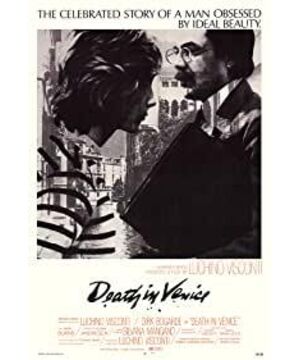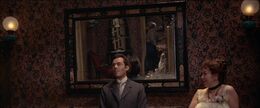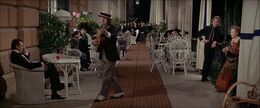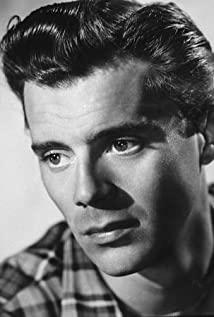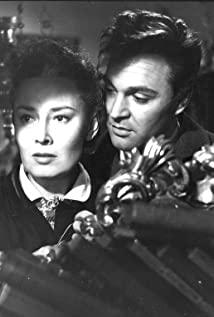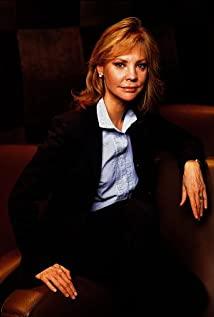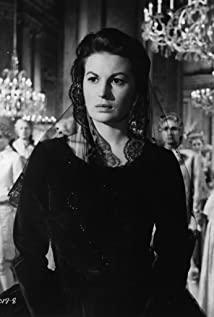"Breaking the Soul in Venice", a literary film of more than two hours, tells the story of the German composer Gustav von Aschenbach who came to Venice to recuperate, met the beautiful young Tadzio, and fell into a spiritual infatuation; but Unfortunately, he contracted the plague and finally collapsed on a sun lounger on the beach of the hotel and died of breathlessness. The film is based on the novel of the same name by Nobel Prize winner Thomas Mann. And Gustav von Asenbach's prototype was inspired by Austrian musician Gustav Mahler. At the turn of the spring and summer of 1911, Thomas Mann read daily in the newspapers about Mahler's deteriorating health. He had met him in Munich and Mahler "impressed me with his strong personality". Thomas was preparing to write "Death in Venice," so he borrowed Mahler's Christian name and gave his appearance to the novel's tortured Asenbach. The photography of the film is delicate and elegant; the costumes of the characters are exquisite; Dirk Bogard is the only one who takes the lead, accurately expressing Asenbach's inner "will" without the help of language dialogue, without the rich inner drama of the opponent's drama, smooth and natural, seems to have flowed. Through the river of his life; and Mahler's music is Asenbach's inner narrator, another "character" of the film. After reading it for the first time, I can't help but ask, why did Gustav, who has a bad heart, choose to go to Venice when the doctor suggested that he needs to rest for a long time? BBC's high-scoring documentary Francesco' Venice "A Brief History of Venice" said that Venice is a free, romantic, passionate and beautiful art capital. In history, it has been invaded by plagues several times in history. People embrace sensuality and lust for life, and tourism has made Venice a high load. Operation, modern industry has made the city face the threat of being submerged. It can be seen that Venice is a holy place for tourism and entertainment, not a quiet place for recuperation. There is a detail, the steamship Gustav took to Venice was called Esmalda; before his vacation, he was visited by a girl named Esmalda. Esmalda is also the name of the gypsy girl in Hugo's "Notre Dame de Paris". The French call Gypsies Bohemians (Gustave Mahler is Bohemians). And Bohemia is a symbol, evoking - wandering, freedom and decadence. At the end of the film, Gusatv asked himself twice what path did he choose? He embarked on a decadent road of free wandering and chose Venice to fully satisfy his free and decadent inner desire. Originally, he adhered to morality and strived for balance. He was an artist who strived to be an example. He pursued complete control of the senses to obtain wisdom, truth and human dignity. Gradually, his inner "will" made him painful and ambiguous. The music business has suffered a decline and doubts, her daughter has died suddenly, and her relationship with his wife must be tense, otherwise, why would he go out alone with a sick person? Gustav was in pain and distraught. When he first arrived in Venice, the mediocre, false, noisy and hot weather he had to deal with made him so tired and tired that he didn't want to raise his eyes. At this moment, Tadzio, a beautiful young man, appeared in his field of vision, that kind of beauty, that kind of joy, like a beautiful "artwork", which made him temporarily forget the pain. Schopenhauer said that in "aesthetic art", people temporarily dissolve into the state of "contemplation", at this time people can temporarily get rid of the shackles of "will", all pain and misfortune subside in an instant, and people are Get a moment of peace and relief in "I Forget About Things". This is just like when appreciating nature, people will also have the ability to "observe" and achieve the realm of "forgetting things and me". Gustav's emotional substance to Tadzio has no language or dialogue, he just falls in love with Tadzio aesthetically, a pursuit of beauty, a spiritual act. He always kept a distance from Tadzio, and at most they looked at each other and passed each other without even knowing the actual move. The camera lens of the film has been carefully looking around the guests coming and going in the hotel, and groups of people have obtained possible opportunities at different times and spaces. In terms of being recognized, these are angles that outsiders like Gustav can cut into. But Gustav believes that life and reality are limitations, so he will stop at observation and will not let either party enter their actual life. That day he returned from the beach to the hotel lobby, took the elevator, and then squeezed in a group of playful children, among them Tadzio, young, innocent and beautiful within an arm's distance of Gustav, he was throbbing, terrified and ashamed , returned to the room and hurriedly splashed water to wash his face to wake himself up, and then immediately decided to check out and go back to Munich, because he couldn't face the "evil" intentions. Early the next morning, he was impatient with the waiter's urging to eat breakfast slowly before leaving. In fact, he wanted to wait for Tadzio to come down to see him for the last time. Sitting on the boat to the station, looking sad and lost. When he was told that his luggage was sent to Como by mistake, he suddenly got a sufficient excuse to return to the hotel. His eyes flashed on the waterway on the way back, and there was little luck in his body movements. Back at the hotel, he opened the window and stood on the balcony, raising his hand and waving to Tadzio's figure on the beach. Yes, Gustav will continue to maintain this distance and enjoy the beauty of this distance. "Love does not possess and is not possessed. Because love is satisfied in love." Gustav stood by the lake after returning from the barber shop, watching Tadzio in the reflection come down from the arch bridge. This reflection is beauty, the phantom of beauty, the ego of the superego. This beauty cannot be real, it cannot be actually possessed, it can only be kept at a distance and the two are related; if you touch it, it will disappear, if you remain still, it will appear again. Akutagawa Ryunosuke said, "What rationality taught me is the pallor of rationality." Gustav has been skeptical since seeing the gondola boatman dying at the station and someone spraying white liquid on the streets of Venice for disinfection. Although there are few reports in the local newspapers, hotels and homeless entertainers have all denied it, and all parties have inquired about it. Afterwards, the bank worker confessed to him privately that the plague had begun in Venice, and advised him to leave quickly that night. But he didn't set off, driven by subtle desires and freedom of mind, to the barbershop, after dressing up the spirit, he continued to chase his beautiful "phantom". According to mythology, the god of love and beauty was born in waves and foam. Before he died, Gustav saw Tadzio walking towards the sea and blending with the waves, foam and light on the sea surface. This beauty and love were like magic. Like a shadow, untouchable from beginning to end. Did he realize that he was infected with the virus plague by the gondola boatman? You see, the boatman's death at the train station is exactly the same as when he died on a hotel beach chair. Perhaps he has never been afraid of death, and felt that he was running out of time before coming to Venice... The film won the BAFTA Film Awards for Best Cinematography, Best Art Direction, and Best Costume Design; Dirk • Bogard was nominated for Best Actor. Dirk's interpretation and interpretation of the role of Gustav has also been described by himself as "the culmination and the end of the career. Never expect a better role in a better movie." For the next 20 years, Dirk Appearing in only seven films, he scoffed at the artistic quality of many of the scripts sent to him. Dirk Bogard has been influenced by art since he was a child. His father was the chief art editor of The Times in London, and his mother was an actress (and born into the arts). Dirk studied commercial art and dramatic art at the school. His father had hoped that his son would follow in his footsteps as an art critic for The Times, but Dirk turned to theatre. To express his artistic pursuits, he began writing in 1977 (at the age of 56) and became a prolific writer, writing a total of seven volumes of autobiography and seven novels, each of which was a bestseller. In the next 20 years, Dirk appeared in only seven films, scoffing at the artistic quality of many of the scripts sent to him. Dirk Bogard has been influenced by art since he was a child. His father was the chief art editor of The Times in London, and his mother was an actress (and born into the arts). Dirk studied commercial art and dramatic art at the school. His father had hoped that his son would follow in his footsteps as an art critic for The Times, but Dirk turned to theatre. To express his artistic pursuits, he began writing in 1977 (at the age of 56) and became a prolific writer, writing a total of seven volumes of autobiography and seven novels, each of which was a bestseller. In the next 20 years, Dirk appeared in only seven films, scoffing at the artistic quality of many of the scripts sent to him. Dirk Bogard has been influenced by art since he was a child. His father was the chief art editor of The Times in London, and his mother was an actress (and born into the arts). Dirk studied commercial art and dramatic art at the school. His father had hoped that his son would follow in his footsteps as an art critic for The Times, but Dirk turned to theatre. To express his artistic pursuits, he began writing in 1977 (at the age of 56) and became a prolific writer, writing a total of seven volumes of autobiography and seven novels, each of which was a bestseller.
View more about Death in Venice reviews


